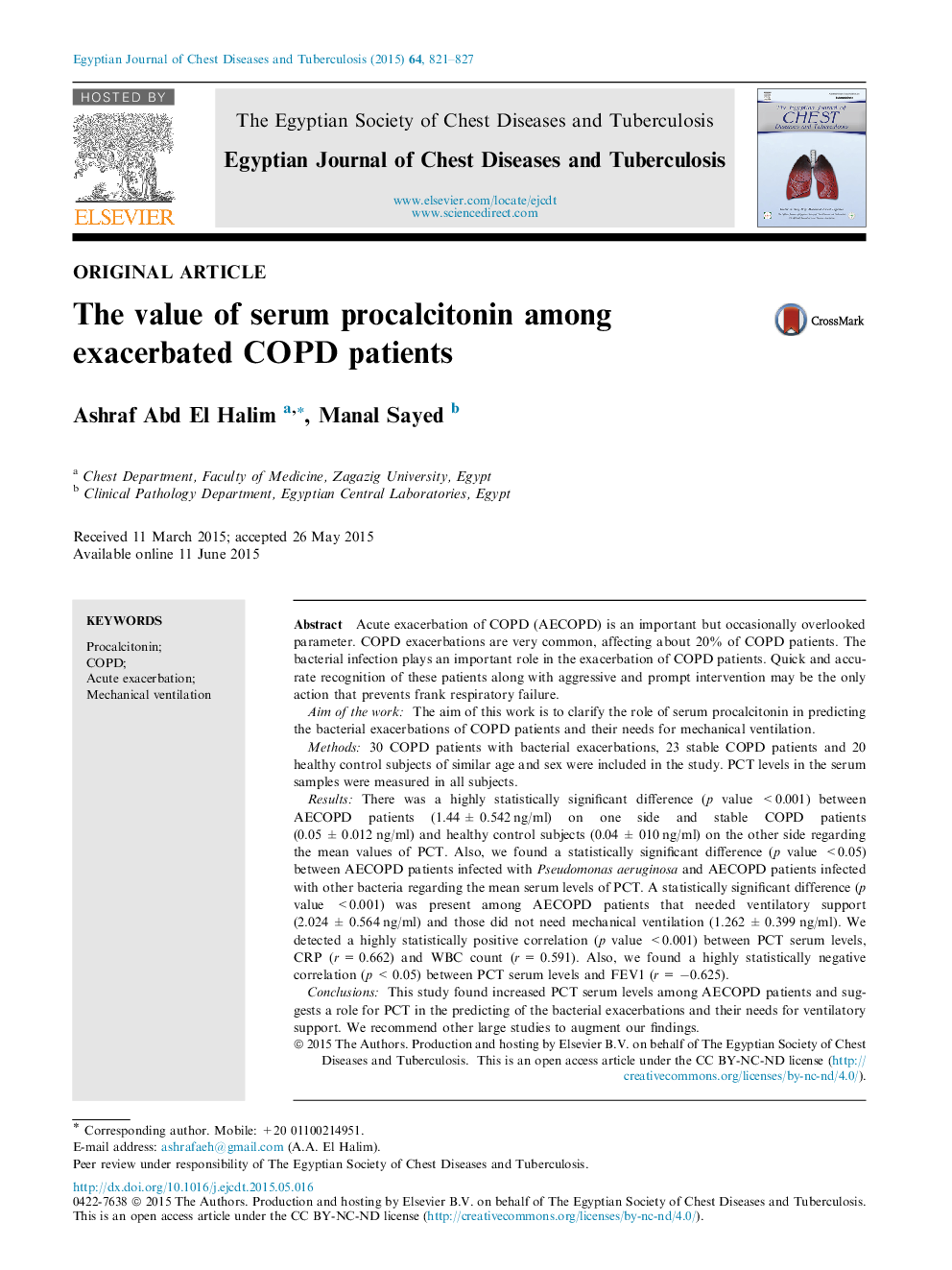| Article ID | Journal | Published Year | Pages | File Type |
|---|---|---|---|---|
| 3399946 | Egyptian Journal of Chest Diseases and Tuberculosis | 2015 | 7 Pages |
Acute exacerbation of COPD (AECOPD) is an important but occasionally overlooked parameter. COPD exacerbations are very common, affecting about 20% of COPD patients. The bacterial infection plays an important role in the exacerbation of COPD patients. Quick and accurate recognition of these patients along with aggressive and prompt intervention may be the only action that prevents frank respiratory failure.Aim of the workThe aim of this work is to clarify the role of serum procalcitonin in predicting the bacterial exacerbations of COPD patients and their needs for mechanical ventilation.Methods30 COPD patients with bacterial exacerbations, 23 stable COPD patients and 20 healthy control subjects of similar age and sex were included in the study. PCT levels in the serum samples were measured in all subjects.ResultsThere was a highly statistically significant difference (p value <0.001) between AECOPD patients (1.44 ± 0.542 ng/ml) on one side and stable COPD patients (0.05 ± 0.012 ng/ml) and healthy control subjects (0.04 ± 010 ng/ml) on the other side regarding the mean values of PCT. Also, we found a statistically significant difference (p value <0.05) between AECOPD patients infected with Pseudomonas aeruginosa and AECOPD patients infected with other bacteria regarding the mean serum levels of PCT. A statistically significant difference (p value <0.001) was present among AECOPD patients that needed ventilatory support (2.024 ± 0.564 ng/ml) and those did not need mechanical ventilation (1.262 ± 0.399 ng/ml). We detected a highly statistically positive correlation (p value <0.001) between PCT serum levels, CRP (r = 0.662) and WBC count (r = 0.591). Also, we found a highly statistically negative correlation (p < 0.05) between PCT serum levels and FEV1 (r = −0.625).ConclusionsThis study found increased PCT serum levels among AECOPD patients and suggests a role for PCT in the predicting of the bacterial exacerbations and their needs for ventilatory support. We recommend other large studies to augment our findings.
